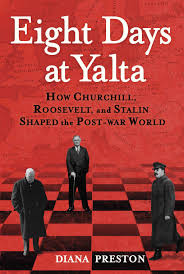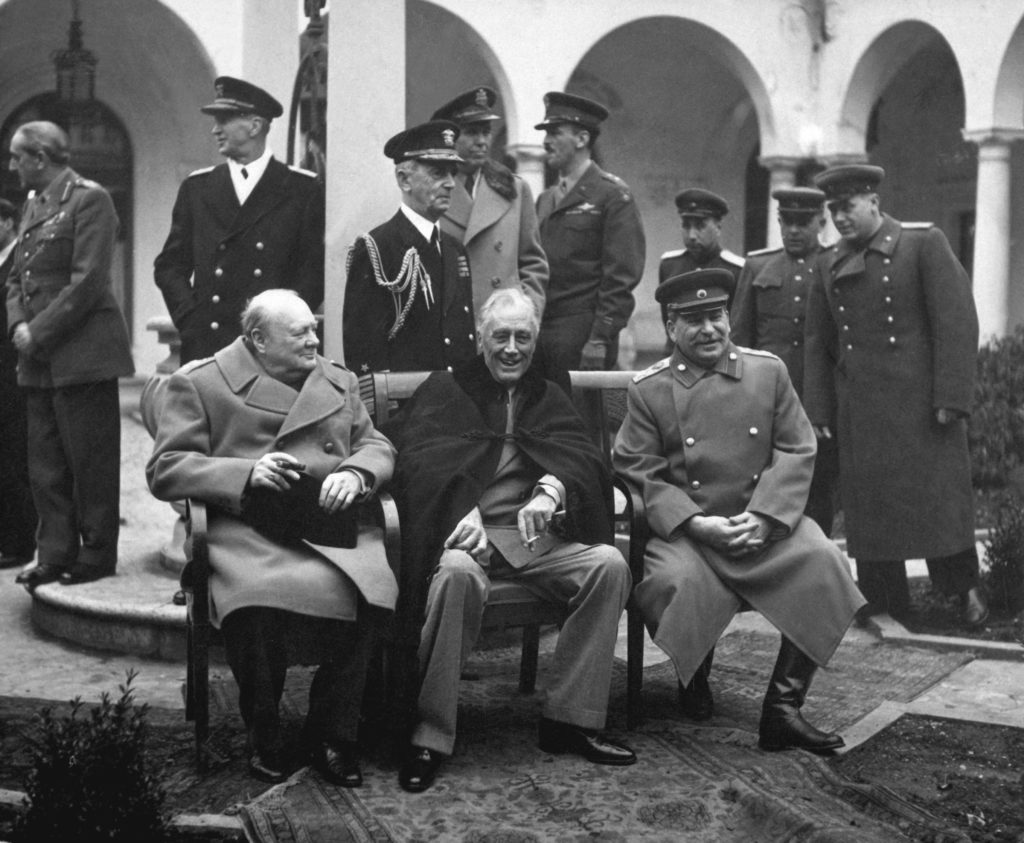Historian Preston argues that Stalin did not actually make patsies out of Roosevelt and Churchill
Eight Days at Yalta: How Churchill, Roosevelt, and Stalin Shaped the Post-War World by Diana Preston, Atlantic Monthly, 2020; $28
Universal indifference greeted the 75th anniversary of the Yalta conference, but historians refuse to take a hint. This latest account by veteran historian Preston tells an entertaining if squirm-inducing story and concludes that the outcome should not have been a surprise. By 1945, all Allied hands knew victory was inevitable; the task now was to decide the future of Germany and its eastern European conquests. Since Joseph Stalin refused to go abroad, the Big Three met at Yalta, a Crimean resort largely destroyed by fighting. Accommodations were primitive except for ubiquitous listening devices that served mostly to stoke Stalin’s paranoia. Despite public blather about peace and self-determination, Stalin, Winston Churchill, and Franklin Roosevelt placed their own nations’ priorities first.
 A decent man but no humanitarian, Roosevelt was a master at the rough and tumble of American politics. He arrived in Yalta confident, perhaps overly so, that he could handle Stalin better than Churchill.
A decent man but no humanitarian, Roosevelt was a master at the rough and tumble of American politics. He arrived in Yalta confident, perhaps overly so, that he could handle Stalin better than Churchill.
Tyrant and devout Marxist Stalin considered his opposite numbers servants of a doomed system conspiring to profit at his expense. With the Red Army already occupying Hitler’s former satrapies, he was installing subservient regimes from Poland to Bulgaria, assuring FDR and Churchill that the free elections he promised would confirm their legitimacy—scout’s honor. In the decades since, critics have agreed reluctantly that military action to free those nations would have been a nonstarter. Many posit that the Allies should have cut off aid to the Soviets and applied sanctions. Preston is not convinced.
Uneasy about Eastern Europe’s fate, Roosevelt and Churchill nonetheless came away pleased at America’s and Britain’s gains. Roosevelt got Red Army help against Japan, whose invasion the Allies assumed would require immense forces even before the bloodbaths on Iwo Jima and Okinawa. FDR was also happy that Stalin agreed to join the United Nations. Churchill’s main aim was to preserve Britain’s status as a great power, which, in his mind, meant the empire. Stalin was amenable provided the British lion kept paws off Eastern Europe.
Proclaimed a triumph for Stalin, Yalta did the USSR no favors. Preston observes that with Germany docile, Soviet satellites did not enhance Russian’s security but imposed tedious, costly burdens. The dictator’s thirst for “reparations” obtained by looting factories may outrage historians, but even with that booty Soviet industry recovered very slowly, while the former Reich bounced back in a snap. —Mike Oppenheim writes in Lexington, Kentucky.
This post contains affiliate links. If you buy something through our site, we might earn a commission. Thanks!





